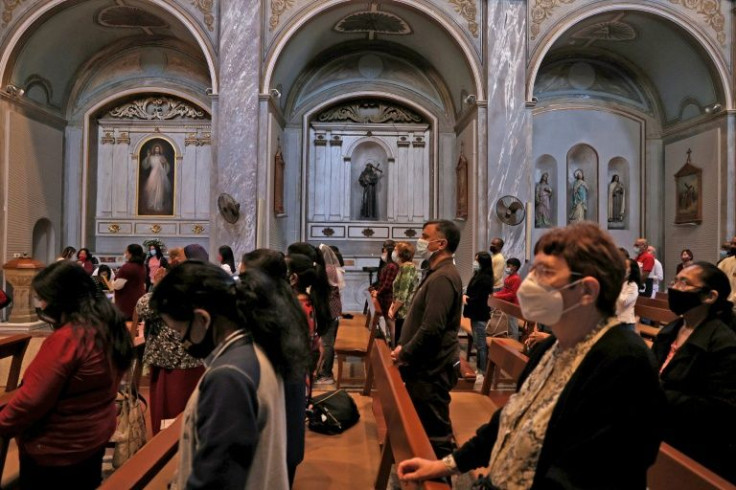Pope Francis Seeks Closer Orthodox Ties On Greece Visit
Twenty years after the last papal visit to Athens sparked protests by monks, Pope Francis heads to the Greek capital on Saturday seeking to improve historically difficult relations between the Roman Catholic and Greek Orthodox Churches.
Francis visited the island of Lesbos in 2016 but his trip to Athens, which will include a mass and meetings with Greece's top cleric, Archbishop Ieronymos, is the first to the Greek capital by a pope since John Paul II came in May 2001.
The Orthodox Church has been separated from the Catholic Church since the schism of 1054 between Rome and Constantinople, today's Istanbul which was then the capital of the Byzantine Empire.
Hardliners in Greece still blame the pope for the split, and for the Fourth Crusade that sacked Constantinople in 1204.
"Welcoming a pope to Athens may seem like a paradox... because there is anti-papist sentiment in Greece traditionally," Athens Archbishop Theodore Kodidis told AFP.
But he said the fact that most sides had accepted the visit was a "sign of hope and progress".
He added that it would be a "moment of unity" for the Catholic community in Greece, which represents around one percent of the faithful, or slightly more counting recently arrived migrants.
John Paul II's 2001 visit sparked a protest by hundreds of monks, who tolled bells and flew black flags in their monasteries.
"Twenty years ago it was very different, it was the first time that a pope came to Greece. Reluctance and resistance were much stronger," Kodidis said.
"Today, there are some hostile voices but it's very marginal," he said, insisting that the "Orthodox hierarchy in Greece will welcome (the pope) with kindness and attention".
Pierre Salembier, head of the Jesuit Catholic community in Greece, agreed that times have changed.

"The climate in which this reception of the pope is being prepared is better than it was for John Paul II, where the press was derogatory and all the anti-Catholic cliches appeared," he said.
John Paul II himself helped break the ice, praying on a hill where Saint Paul preached to the Athenians almost 2,000 years ago, and asking Orthodox believers to forgive the errors of the Roman Catholic Church.
During his visit in 2016 to Lesbos -- for many years a key entry point into Europe for migrants and asylum seekers -- the pope was joined by Archbishop Ieronymos as well as Patriarch Bartholomew I of Constantinople, the leader of the world's Orthodox Christians.
Hyacinthe Destivelle, director of the Institute of Ecumenical Studies at Rome's Angelicum university, said the friendship between Francis and the patriarch "contributes without doubt to a deepening of relations with the entire Orthodox world".
Francis has already visited several majority Orthodox countries including Georgia, Armenia, Romania, Bulgaria and the Republic of North Macedonia.
His trip to Cyprus in the two days before arriving in Athens will also "be the occasion to deepen friendship and fraternal relations with the leaders of those churches", Destivelle told AFP.
But Jesuit priest Salembier cautioned that, given the stated independence of the different Orthodox churches, Patriarch Bartholomew has limited influence.
Inside the Greek Church, Salembier noted, "there are some well-known anti-Catholic fanatics".
One well-known hardliner, Bishop Seraphim of Piraeus, has called the pope's visit "immoral", according to the Union of Orthodox Journalists.
In the past 20 years, "the Orthodox Greek community has become a bit more fundamentalist", said Petros Panagiotopoulos, a theologian at the Aristotle University of Thessaloniki.
"There will be protests", he predicted, likely small in number "but noisy".
Another theologian, Nikos Zacharopoulos, said, however, that "despite the discordant voices... the Greek Orthodox Church, its clergy and its laity want to reinforce links between the Orthodox churches and Catholicism."
© Copyright AFP 2024. All rights reserved.











